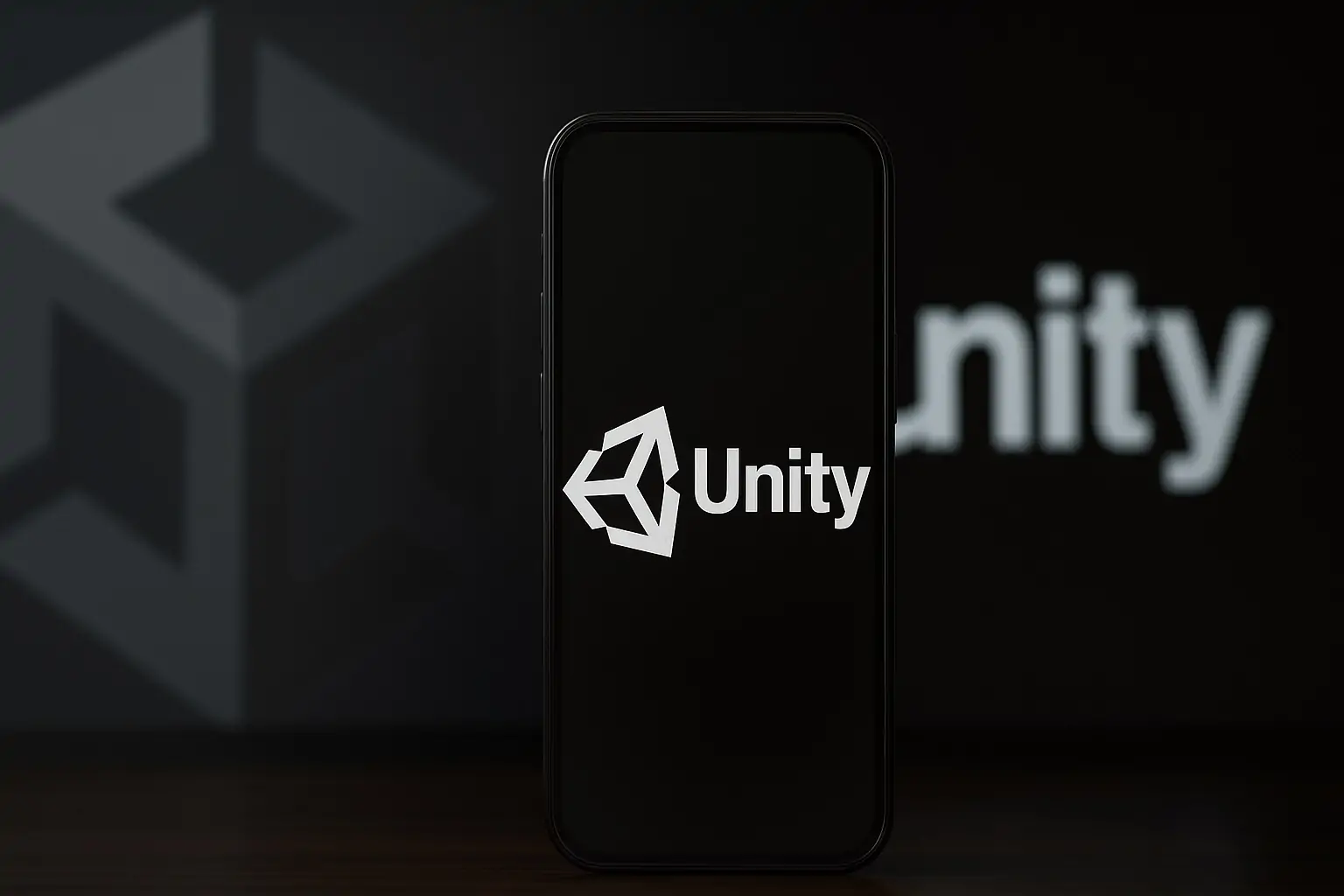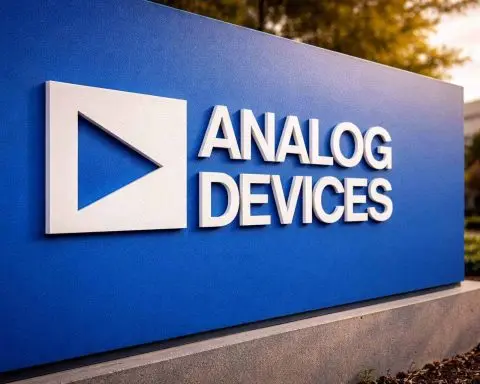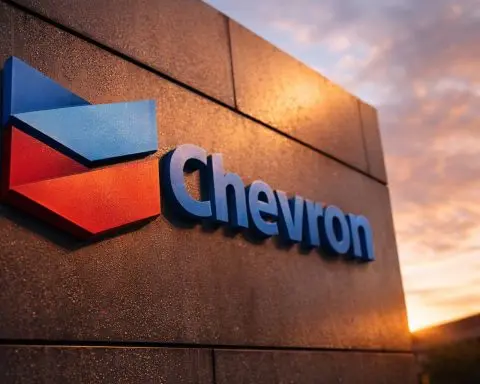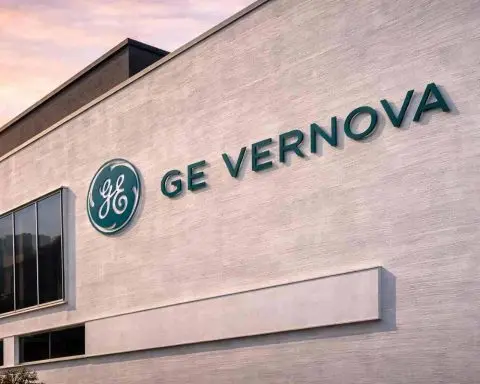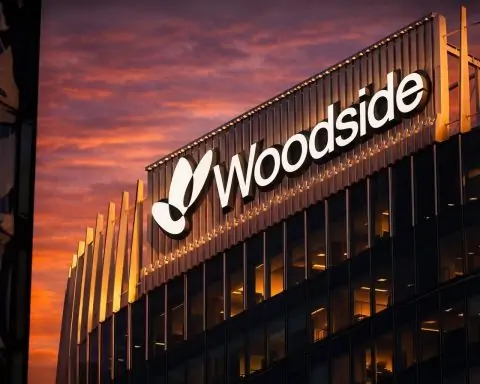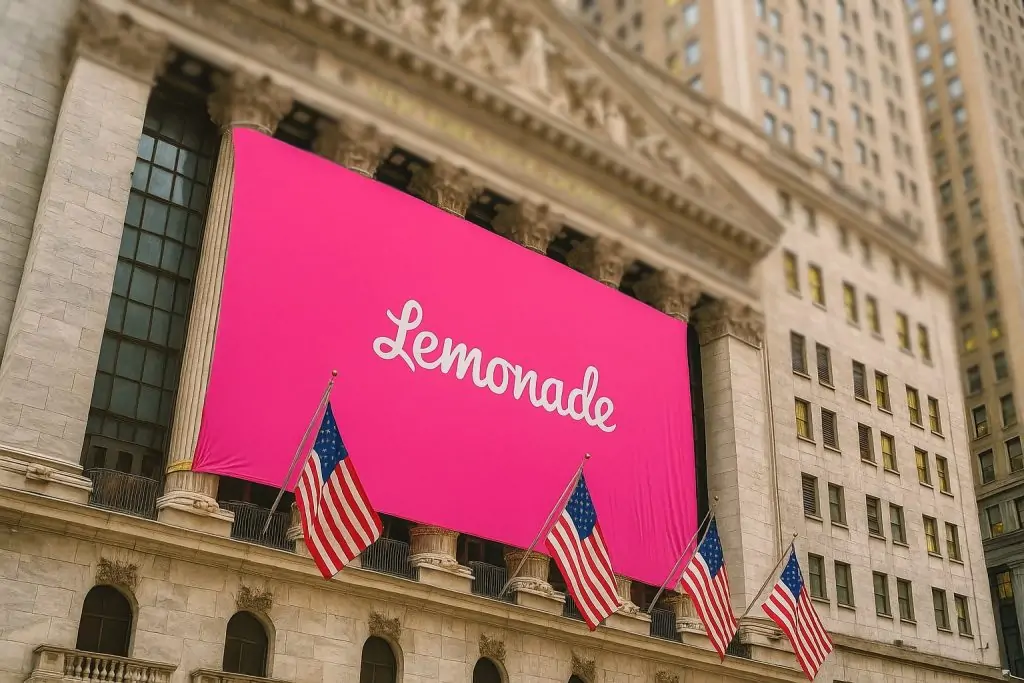- Q3 2025 Results Beat: Unity reported Q3 revenue of $471 million (+5% YoY) and adjusted EPS $0.20, far above analysts’ ~$0.17 estimatebusinesswire.comfinancialcontent.com. Adjusted EBITDA was $109M (23% margin), up from $92M (21%) a year agobusinesswire.com. Free cash flow was $151M, and operating cash flow $155M, a sharp improvement from 2024businesswire.com.
- Robust Guidance: Unity issued Q4 guidance of $480–$490M revenue (vs. ~$479M consensus) and $110–$115M adj. EBITDA, allaying slowdown fearsbusinesswire.comfinancialcontent.com. Management cited “continued strength in Create” and an AI-powered ad network as driversbusinesswire.combusinesswire.com.
- Stock Surge: Unity’s stock closed $35.87 on Nov 4 and leapt ~17% to ~$41+ pre-market on Nov 5 following the beatstockanalysis.comfinancialcontent.com. In fact, analyses note the stock “blew past” EBITDA forecasts, trading up nearly 10% immediately after earningsfinancialcontent.com. Over the past year Unity is up about 65%investing.com, reflecting renewed investor confidence.
- Product Powerhouse: Unity is a leading real-time 3D development platform for games and interactive content across mobile, PC/consoles, AR/VR and morebusinesswire.com. Its business is divided into Create Solutions (dev tools and subscriptions) and Grow Solutions (ads/monetization). In Q3, Create revenue hit $152M (+3% YoY) and Grow revenue $318M (+6% YoY)businesswire.com, buoyed by strong new ad products and Vector AI (Unity’s machine-learning engine).
- Strategic Partnerships: Unity has been forging key alliances. In June 2025 it launched the Unity Audience Hub (with Optable, Experian, Roku, etc.) for privacy-first game advertising – early beta campaigns saw 103%+ lifts in engagementinvestors.unity.com. In August 2025 Unity joined with Globant to apply its 3D engine in enterprise (auto, healthcare, manufacturing)investors.globant.cominvestors.globant.com. Such partnerships aim to broaden Unity beyond gaming into other “real-time 3D” markets.
- Leadership & Governance: Unity’s leadership has seen an overhaul since late 2024. After the controversy over a “runtime fee,” longtime CEO John Riccitiello left and Matt Bromberg (ex-Nike/Adidas) took over in March 2025. Bromberg has emphasized mending developer relations and disciplined growth. He hired ex-Shutterstock CFO Jarrod Yahes (effective Jan 2025) and in late 2024 appointed veteran engineer Steve Collins (ex-King/Havok) as CTOinvestors.unity.com. Bromberg openly admits Unity was once “at war with its customers” under the old regimetheverge.com; scrapping the runtime fee was his first act to rebuild trust.
Business Overview and Offerings
Unity (NYSE: U) is the world’s leading platform for creating, running, and monetizing interactive 3D content across devices. Its core engine is used in ~70% of mobile games and a large share of console/VR titles. The company divides its revenue into:
- Create Solutions: Developer tools, Unity Editor subscriptions, and asset marketplaces for building games and 3D experiences.
- Grow Solutions: In-game advertising, analytics, and user-acquisition services. This includes the legacy Unity Ads network and newly integrated ironSource technologies for monetization.
Unity’s engine also supports AR/VR/XR – for example, car dashboards and industrial simulations – and Unity promotes itself as key to any “metaverse” or extended-reality applicationsbusinesswire.cominvestors.unity.com. In practice, Unity’s focus is on enabling game and app developers at every stage (creation, live-ops, monetization). As one investor report notes, Unity lets devs “create, run, and monetize interactive 2D/3D content for mobile, PCs, consoles and augmented/virtual reality”businesswire.com.
Recent Financial Performance and Q3 Results
Unity’s Q3 2025 earnings (for the quarter ended Sept 30) were stronger than expected across the boardbusinesswire.comfinancialcontent.com:
| Metric | Q3 2025 | Q3 2024 | YoY % |
|---|---|---|---|
| Total Revenue | $471.0 M | $447.0 M | +5% |
| Create Solutions Rev | $152.0 M | $147.0 M | +3% |
| Grow Solutions Rev | $318.0 M | $299.0 M | +6% |
| Adjusted EBITDA | $109.0 M (23% margin) | $92.0 M (21% margin) | +19% |
| Adjusted EPS (non-GAAP) | $0.20 | $0.19 | +5% |
Source: Unity press releasebusinesswire.com.
Notably, operating cash flow was $155M (vs. $37M a year ago) and free cash flow $151Mbusinesswire.com, reflecting tight cost control. GAAP net loss was $127M (about 27% of sales) – a slight increase from 2024’s $125M loss – but this was overshadowed by the positive cash metrics. Management attributes revenue growth to subscription strength in Create and the “Unity Ad Network, powered by Unity Vector” in Growbusinesswire.com. In commentary, CEO Bromberg declared the quarter “exceeded expectations on both revenue and Adjusted EBITDA, powered by Unity Vector AI”businesswire.com.
Unity’s Q4 outlook was also reassuring. The company guided to $480–490M in revenue (midpoint $485M), above Street consensus of ~$479Mbusinesswire.com, with adjusted EBITDA expected ~$112.5M (midpoint). This implies continued sequential growth (mid-single-digit in Grow, high-single-digit YoY in Createbusinesswire.com). Wall Street analysts generally agreed the results were strong; for example, Chartmill noted Unity “blew past analysts’ EBITDA expectations”financialcontent.com. After the results, analysts like Wedbush’s Alicia Reese kept an Outperform rating (raising her target to $42)gurufocus.com, and Citigroup’s Jason Bazinet in early Oct had a $50 target on the stockgurufocus.com.
Recent News and Developments
- AI Council: In late September 2025 Unity announced a new AI Advisory Council to speed AI-driven innovation. AI experts Jia Li (former Google AI research head) and Julian Togelius (game AI researcher) were named to the councilinvestors.unity.com. CEO Bromberg said “AI is transforming our industry… We’re excited to welcome Jia and Julian” to help Unity’s platform evolveinvestors.unity.com. This underscores Unity’s strategic emphasis on generative AI for game content and ads.
- Advertising Expansion: In October 2025 Unity hired Chris Feo (ex-Experian) as SVP of Programmatic Advertisinginvestors.unity.com. Feo highlighted that “Gaming is one of the fastest-growing opportunities in programmatic advertising, and I believe Unity is uniquely positioned” to reach brand marketers via its Audience Hubinvestors.unity.com. COO Alex Blum praised Feo as “the perfect leader to scale Unity’s programmatic business globally” in service of a “privacy-first, omnichannel” ad ecosysteminvestors.unity.com. These hires and the new Audience Hub (launched June 2025) reflect Unity’s push to turn its gaming user base into targeted ad inventory.
- Partnerships: Unity has deepened ties across industries. The Globant partnership (Aug 2025) brings Unity’s 3D engine to enterprise digital twins in auto, healthcare, etc.investors.globant.cominvestors.globant.com. The Audience Hub is powering collaborations with Experian and Rokuinvestors.unity.com to target console/CTV viewers. Internally, Unity acquired ironSource (Nov 2022) to integrate its ad-tech (originally for mobile apps) into Unity’s Grow segment, creating an end-to-end game monetization platform.
- Leadership and Governance: The new management team is focused on stability. Bromberg (Unity President/CEO) has publicly acknowledged the company’s earlier “war” with developers over pricingtheverge.com. He reversed the contentious runtime fee and reset priorities. The Oct 2024 hires of Yahes (CFO) and Collins (CTO) were explicitly about “operational discipline” and tech leadershipinvestors.unity.com. Unity’s board has also signaled alignment with this new vision, with insider confidence returning under Bromberg’s tenure.
Stock Price and Performance
After languishing through 2022–2024 (down ~80–90% from highs), Unity’s stock has rebounded strongly in 2025 on renewed optimism. It closed $35.87 on Nov 4, 2025stockanalysis.com, and on Nov 5 jumped to a pre-market high of about $41.96 (a ~17% gain) on the blowout earningsstockanalysis.com. This surge exceeded many of its tech peers, reflecting the market’s positive reaction to the AI/ads-led growth narrative. Over the past 12 months Unity stock is up ~65%investing.com, far outpacing the S&P 500.
That said, analysts note volatility: technical indicators as of Nov 5 were mixed (many suggesting a neutral/“Hold” stance)stockscan.io. Wall Street consensus (pre-earnings) had an average price target in the mid-$30sgurufocus.com. Key bulls (Citigroup’s $50, Morgan Stanley’s $40) assume accelerating ad revenue, while more cautious firms see modest upside. After Q3, any target changes will hinge on whether AI ad tools can sustain growth.
Competitive Landscape
Unity’s main rival in game engines is Epic Games’ Unreal Engine, which is free to use (with royalty fees) and excels at high-end graphics (e.g. AAA games, Fortnite). Epic recently also embraced open standards by joining Amazon’s Open 3D Engine projecttechcrunch.com, but Unity remains dominant in mobile and indie games. Other engine competitors include open-source projects like Godot and Amazon’s Open 3D Engine (O3DE), though Unity’s polished ecosystem and marketplace give it an edge with developers.
In the broader digital entertainment/metaverse space, Unity competes more on enabling technology than on end-user platforms. For example, Roblox (RBLX) offers its own user-generated gaming platform – not a code-toy like Unity – so they target similar markets (game creation/monetization) from different angles. Meta (Facebook/Oculus) uses Unity to build many VR apps, but Meta is also a content platform. Analysts point out that unlike Meta’s expensive hardware bets or specialist platforms, Unity’s strategy is to embed its engine everywhere (from smartphones to enterprise XR). As Bromberg noted, Unity is now a provider “for everything running those big live services and the monetization on top of that”theverge.com.
Strategy: AI, AR/VR, Ads and the “Metaverse”
Unity is explicitly pushing AI. Its “Vector” AI engine has been integrated into ad optimization and analytics, and the AI Council signals a focus on generative content. (Unity hired talent from Google and games AI for this reasoninvestors.unity.com.) Internally, Unity is adding AI features to its Editor (e.g. automated asset generation) and to its data analytics.
On AR/VR, Unity already supports development for devices like Meta Quest, PlayStation VR2, and Apple’s visionOS (Vision Pro). The company sees “XR” as a growth area – Unity often highlights that most top AR games use its enginetheverge.com. However, the high-hype “metaverse” concept has been largely toned down: Unity now talks about “interactive real-time 3D experiences” and digital twins in business, rather than a single metaverse platform. Analysts say Unity’s role will be as the underlying toolkit for whatever metaverse projects do get built, rather than as a front-end social world itself.
In advertising, Unity has aggressively built privacy-friendly targeting tools (e.g. Audience Hub’s first-party data approach) to court CTV and brand clients. The June 2025 Unity press release on Audience Hub touts 103%+ engagement lift for marketersinvestors.unity.com. Executive hires like Feo underscore the bet that gaming audiences will become as valuable to advertisers as social-media users. Unity is essentially bridging the gap between traditional digital ads and the gaming ecosystem.
Outlook and Forecasts
Analysts remain moderately bullish but cautious. Sell-side projections (pre-Q3) saw mid-single-digit growth in 2025–26 revenues, driven by recurring subscriptions plus rising ad spend in gaming. One stock analysis cited a consensus 8.3% revenue increase over the next 12 monthsfinancialcontent.com. Citi’s Bazinet recently upped his 12-month target to $50, banking on AI ad tools (25%+ upside), while others (HSBC, Barclays) are more reserved.
Looking further ahead, automated “machine forecasts” (e.g. stockscan.io) paint wildly optimistic scenarios (some predicting Unity average ~$89 by end-2025, and even six-fold growth by 2045)stockscan.io – but such models are not expert consensus. Realistic near-term drivers are: post-pandemic game demand, digital ad budgets shifting to gaming, and Unity’s ability to manage costs. A December 2025 Zacks blog expected another earnings beat (fed by AI/ads momentum) but cautioned that weaker Create bookings could temper resultszacks.com.
In summary, Unity’s prospects hinge on execution of its AI and advertising strategy. The company now has a leaner cost structure and strong cash flows, so even modest top-line growth yields outsized profit improvements. If Unity can sustain >5% sales growth (the current guidance) with expanding ad revenue, the stock’s recent rally may have more room. However, if gaming/dev spending reverts to mean or competition intensifies (from Epic or open engines), upside could stall.
Leadership, M&A, and Other Moves
Aside from the leadership shakeup (Bromberg/Yahes/Collins), Unity has been tidying its balance sheet. It refinanced debt in 2025 and now holds nearly $1.9B in cashbusinesswire.com. No major new acquisitions have been announced recently, but the company’s 2021–22 deals (e.g. Weta Tools, ironSource) are still being integrated. Some investors still remember AppLovin’s $20B bid in 2022 (which Unity declined) and point out that Unity’s market cap (~$20B as of Nov 2025) could entice M&A interest.
In conclusion, Unity’s story as of Nov 5, 2025 is one of a rebuilt company: new leadership has leveraged AI and advertising innovations to turn around financials, exciting the market in the short termbusinesswire.comfinancialcontent.com. The key questions ahead are execution and competition – whether Unity can keep growing with the games industry and successfully import its tech into other sectors. For now, expert consensus tends to be cautiously optimistic (most ratings are “Outperform” or “Buy”gurufocus.com), reflecting a view that Unity’s pivot – from war-with-developers to AI-driven partner – may finally be paying off.
Sources: Official Unity earnings releasebusinesswire.combusinesswire.com; Unity press news (AI Councilinvestors.unity.com, Audience Hubinvestors.unity.com, Ads hireinvestors.unity.com, partnershipsinvestors.globant.com); financial news/analysis (StockStory/FinancialContentfinancialcontent.comfinancialcontent.com, Chartmillchartmill.com, Investing.cominvesting.com); executive interviews (The Verge)theverge.com; analyst reports (Gurufocus, Zacks)gurufocus.com. All quotes and data are cited from these sources.
